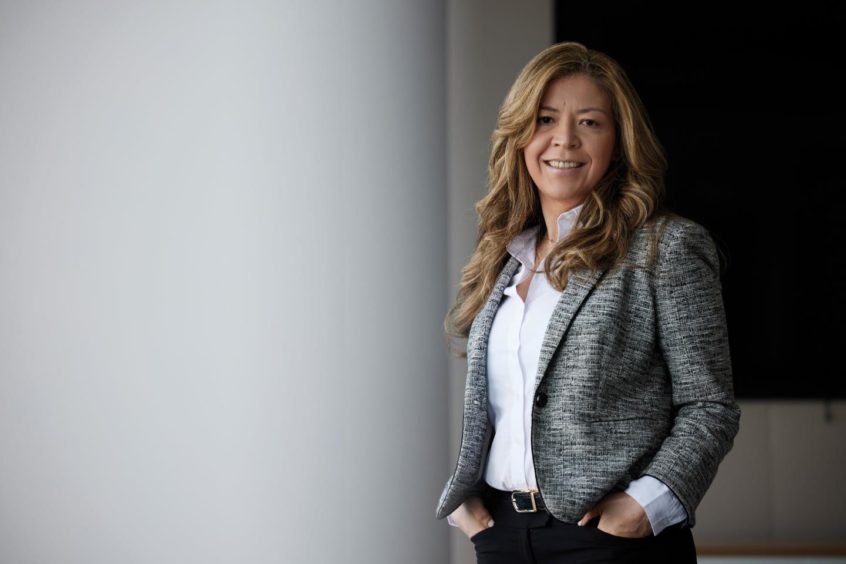
As a young woman taking my first tentative steps into the oil and gas industry, I was acutely aware that I was in the minority.
It was the early 2000s and, while I was by no means a “pioneer”, I knew I had joined a thoroughly male-dominated industry.
My decision to pursue a career within the oil and gas industry came about during an oil boom in my native Colombia, just when I was leaving school, and was borne out of my desire to support the development of a more sustainable energy industry that could support society and bring about greater prosperity for all.
But when I graduated in 1998, oil prices had plummeted to $8 per barrel and jobs were in short supply. The oil downturn led me to the US where, after completing my Masters Degree at Texas A&M, I was immediately surrounded by a supportive group of mentors – male and female – who helped me develop my knowledge of this exciting industry.
It was this strong, supportive foundation that provided me with a springboard to develop a successful career, and today I am proud to lead Neptune Energy’s global subsurface team.
I couldn’t agree more with the respondents to the recent OGUK survey, the results of which were published last month, when they collectively suggested that we’re not making progress quickly enough. It was also telling to see that the younger the demographic, the more critical their view of our industry’s diversity and inclusion performance.
The headline-grabbing finding from the OGUK Report – that it would take 30 years to achieve gender parity within the industry – is a provocative one and has certainly put the issue of diversity issue a under the spotlight.
As an industry, we’ve been aware of the lack of diversity within our workforce for some time, but while the latest survey results make for difficult reading we needn’t be disheartened as we stand on the cusp of a great opportunity to make real progress.
Much has changed since the industry was established in the UK in the 1960s, both within the sector itself and across wider society. Our communities – and the schools, colleges and universities which serve them – are more diverse than ever before.
Add to this the issue of the aging workforce and it’s clear to see that there is a real opportunity to turn the tide.
With the imminent retirement of thousands of workers who have made a tremendous contribution to the sector, we have a chance to promote our industry and the boundless opportunities it can offer, as well as attracting an influx of young, diverse talent to the sector.
The oil-price slumps in the 1980s and 90s forced many young professionals out of the oil industry in search of more stable career paths, and other downturns since have had a similar effect, creating a dearth of young talent. Today, as an industry, we are not doing enough to appeal to the younger generations. It is our responsibility to develop them and provide them with a platform from which they can effect change through the energy transition.
At Neptune, through honest and often tough conversations, we’ve created an Equality, Diversity & Inclusion (ED&I) charter, with tangible actions.
The teams in each of the countries we operate established their own independent action plan to ensure more diverse representation of ages, ethnicity and gender, and equality of opportunity at all levels of our business. Our people drive the objectives and this helps ensure they are fit for purpose, meaningful and provide real benefit.
We’re engaging with young people to encourage more women and minorities to pursue careers in Science, Technical, Engineering and Maths fields. And we’re supporting the Young Energy Officers program initiated in the Netherlands, to help give young people joining our organisation the kind of support that I benefited from when I took my first steps into oil and gas.
Changing the perceptions around our industry won’t be easy, but giving greater visibility to women and minorities who contribute to the success of our businesses is a good start.
As a sector, we need to build a persuasive narrative for graduates and entry level hires to articulate how the industry promotes socioeconomic development and can help manage the transition to the future. These are exciting times to join the industry, but if we don’t appeal to younger generations, which are by default more diverse, we will lose the ability to attract the best talent.
We must do all we can to foster an environment where young men and women of all backgrounds feel not only like they belong, but that they have a valuable role to play in shaping the future of our industry by providing the sort of mentorship and support I benefited from as I set off on my career 20 years ago.
Recommended for you
